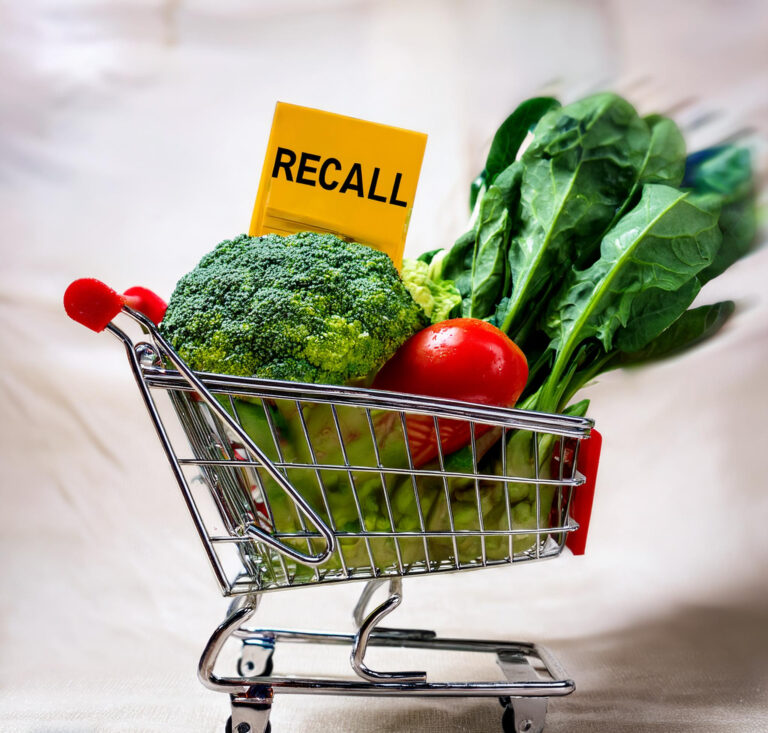A recent listeria recall has affected vegetable products sold at major retailers, including Walmart and Aldi. Listeria contamination is a serious issue, especially for pregnant women, the elderly, and those with weakened immune systems. If you’ve recently purchased vegetables from these stores, it’s crucial to stay informed about the products affected and the steps you should take to protect yourself and your family. In this article, we’ll break down everything you need to know about the listeria recall at Walmart and Aldi.
What is Listeria?
Listeria is a harmful bacterium that can contaminate food, leading to listeriosis, a serious infection that can cause symptoms like fever, muscle aches, and gastrointestinal issues. In severe cases, listeriosis can lead to life-threatening complications, particularly for pregnant women, newborns, and individuals with weakened immune systems.
Common symptoms of listeriosis include:
- Fever
- Diarrhea
- Nausea
- Headache
- Stiff neck
- Muscle pain
If you have consumed any of the recalled products and are experiencing these symptoms, it is important to seek medical attention promptly.
The Recent Listeria Recall: Affected Products
The listeria recall has impacted various frozen and fresh vegetable products sold at Walmart and Aldi. These vegetables were distributed across several states, and it is vital to check if any of the products you purchased are included in the recall.
Here are the affected products from Walmart:
- Fresh frozen mixed vegetables
- Frozen sweet corn
- Bagged broccoli florets
- See the full list of Walmart’s recalled products
And from Aldi:
- Steam-in-bag vegetable medley
- Frozen green beans
- Pre-packaged salad mixes
- Check Aldi’s full recall list
These vegetables have been recalled due to possible listeria contamination during the packaging process. Both companies are urging customers to return or dispose of any affected products for a full refund.
What to Do If You’ve Purchased Recalled Vegetables
If you have purchased any of the recalled vegetables from Walmart or Aldi, here’s what you should do:
1. Stop Using the Product
Immediately stop using any of the recalled products and remove them from your kitchen. Even if the vegetables appear fresh, they could still be contaminated with listeria.
2. Check for Refunds
Both Walmart and Aldi are offering refunds for the recalled items. Bring your receipt or product packaging to the store for a full refund.
3. Clean Your Fridge and Surfaces
Listeria can spread in your refrigerator and onto surfaces. Clean your fridge and any surfaces that came into contact with the recalled vegetables using hot, soapy water. For a deeper clean, you can also use a solution of one tablespoon of bleach per gallon of water to disinfect surfaces.
4. Monitor Your Health
If you consumed any of the recalled vegetables, be on the lookout for symptoms of listeriosis. Symptoms can appear up to two months after exposure, so it’s important to monitor your health over the coming weeks. If you experience any of the symptoms mentioned earlier, contact your healthcare provider.
How to Protect Yourself from Listeria
Listeria contamination can happen in various food products, particularly in pre-packaged vegetables, deli meats, and unpasteurized dairy products. Here are some tips to protect yourself from listeria:
1. Cook Vegetables Thoroughly
Listeria bacteria can be killed through cooking. Ensure that you thoroughly cook frozen or fresh vegetables, especially those pre-packaged or prepared in bulk.
2. Keep Refrigerators Clean
Listeria can survive in cold environments. Clean your refrigerator regularly and avoid leaving food in the fridge for extended periods.
3. Wash Produce Before Use
Even if the produce is labeled as pre-washed, it’s a good idea to rinse it under running water before consumption.
4. Be Cautious with High-Risk Foods
Avoid consuming high-risk foods like unpasteurized dairy, raw sprouts, and deli meats, especially if you are pregnant or have a weakened immune system.
Conclusion: Stay Informed and Stay Safe
The recent listeria recall at Walmart and Aldi highlights the importance of staying informed about potential foodborne illnesses. Make sure to check your vegetable products, return or dispose of any recalled items, and take steps to protect yourself from future contamination. If you have any concerns or health symptoms, consult your doctor promptly.



